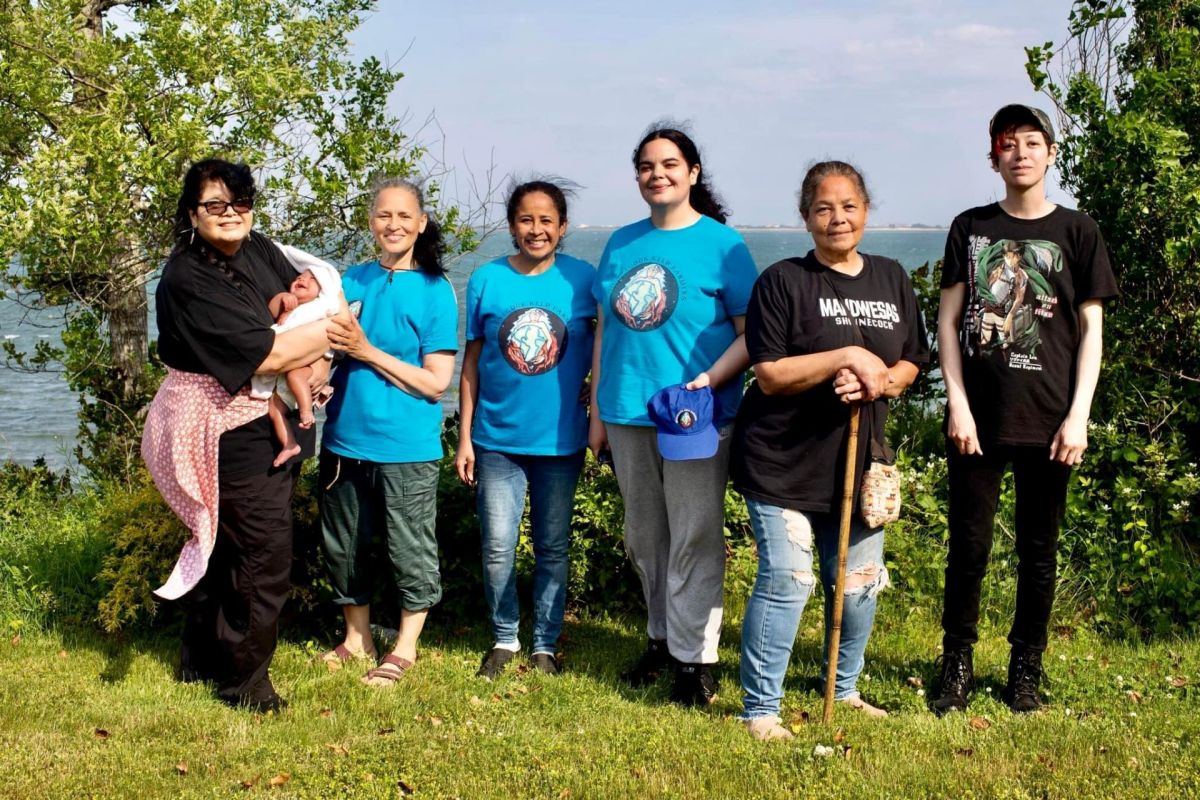A group of Indigenous women and nuns have joined forces to heal the polluted waters of New York, using kelp and song.
It all began when one of the sisters started singing while another played the flute and others recited poetry and prayers to help some kelp seedlings grow big and healthy before being planted off the shores of Long Island, New York, as reported by The Guardian.
They are working with a group of women from the Shinnecock, a local Indigenous tribe, to establish a kelp farm. The goal is to clean up the pollution in their "shared backyard," per The Guardian.
Danielle Hopson Begun, a tribal member, told The Guardian: "When we started our hatchery, we were doing a lot of research for ways to give our kelp the best start in life."
Begun told the outlet that "studies have shown that plants respond well to high-frequency tones."
The goal of the group is to use the kelp to get rid of the carbon and nitrogen that have been poisoning the local waters.
For years, the waters surrounding Long Island have had health problems due to wastewater and stormwater runoff. That introduces too much nitrogen and other nutrients that increase the growth of algae, which uses up the oxygen in the water, per Earth.org.
This lack of oxygen, called hypoxia, has made aquatic life-forms either leave the area or die.
In 1985, the EPA, along with the states of New York and Connecticut, joined forces to form the Long Island Sound Study.
Since then, the initiative has led investments and programs that have had a conservation impact of over $62 million, per Earth.org, for various regional and local projects.
But there is still lots of work to be done, and kelp may be the answer.
Studies have shown that kelp has the ability to absorb carbon and nitrogen from water, acting as a natural way to fight ocean acidification.
Starting a kelp farm generally includes growing kelp from seedlings in tanks at a hatchery and farming them in ocean water.
In 2019, six Shinnecock women decided to take their own initiative using kelp. They came together to create a kelp-farming collective and sought the help of the Sisters of St. Joseph.
Together, they are working to save the bay where both communities are located, and it appears to be working.
"Our voices for so long have just been erased or silenced," said Shinnecock lawyer Tela Troge, whose tribe has been on Long Island for the last 13,000 years, per The Guardian.
"It's refreshing. It's empowering," Troge said, referring to the change her people are making with the nuns.
Join our free newsletter for cool news and cool tips that make it easy to help yourself while helping the planet.









